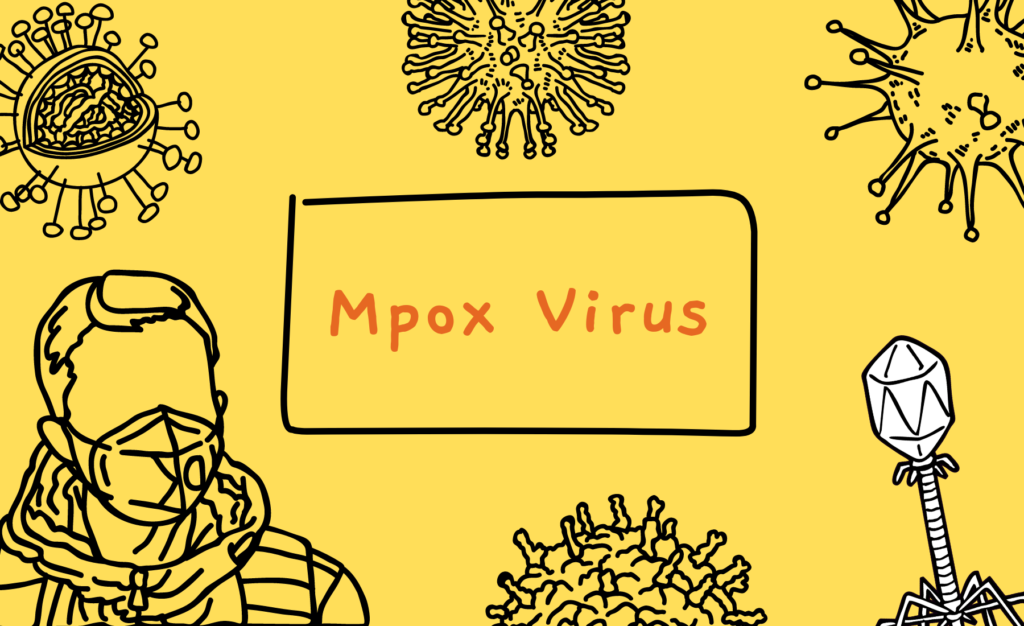The Mpox virus, once considered a distant threat limited to certain regions of Africa, has recently made its presence felt in various parts of the world, including India. As the virus begins to surface in the country, the Indian government has initiated several measures to contain its spread and mitigate its impact. This blog explores the current status of Mpox in India, the government’s preparedness, and the potential social and economic effects of the virus. An FAQ section is also provided to address common concerns.
Mpox in India: Current Status
Mpox, formerly known as monkeypox, is a zoonotic disease caused by the Mpox virus. Although the virus was first discovered in the 1950s, it has only recently gained global attention due to outbreaks outside its traditional endemic areas in Central and West Africa. In India, the first cases of Mpox were reported in mid-2022, primarily among individuals with travel history to affected countries.
As of 2024, India has reported a limited number of confirmed cases. However, the risk of the virus spreading within the country remains a concern, especially in densely populated areas where close contact between individuals is common.
Government Preparedness: Measures and Actions
The Indian government has been proactive in responding to the potential threat posed by Mpox. Several measures have been put in place to prevent the spread of the virus and to manage cases effectively:
- Surveillance and Monitoring:
- The government has ramped up surveillance efforts, particularly at international airports and other points of entry. Passengers arriving from countries with reported Mpox cases are subjected to health screenings and advised to self-monitor for symptoms.
- The Indian Council of Medical Research (ICMR) has established guidelines for the detection and management of Mpox cases, ensuring that healthcare providers are equipped to identify and treat the disease.
- Testing and Diagnostics:
- Laboratories across the country have been equipped with the necessary tools to conduct RT-PCR tests specific to the Mpox virus. This rapid testing capability ensures that suspected cases can be confirmed or ruled out promptly.
- The National Institute of Virology (NIV) in Pune has been designated as the central laboratory for Mpox testing and research.
- Vaccination Strategy:
- While no specific vaccine has been developed for Mpox, the government has explored the possibility of using smallpox vaccines, which have shown cross-protection against Mpox. Vaccination is being considered for high-risk groups, including healthcare workers and individuals with a history of close contact with confirmed cases.
- Public Awareness Campaigns:
- The Ministry of Health and Family Welfare has launched public awareness campaigns to educate the public about the symptoms, transmission methods, and preventive measures for Mpox. These campaigns aim to reduce stigma and encourage individuals to seek medical attention if they suspect they are infected.
- Healthcare Infrastructure:
- Isolation wards and quarantine facilities have been set up in major hospitals across the country to manage confirmed and suspected Mpox cases. Healthcare workers are being trained to handle cases safely and effectively, minimizing the risk of transmission within healthcare settings.
Social and Economic Impact of Mpox in India
Social Impact:
- Stigma and Fear: Like many infectious diseases, Mpox has the potential to create fear and stigma, particularly against those who contract the virus. Public awareness campaigns are crucial to combat misinformation and ensure that affected individuals receive appropriate care without discrimination.
- Impact on Daily Life: If the number of cases increases, it could lead to disruptions in daily life, including the imposition of quarantine measures, restrictions on gatherings, and increased health surveillance. This could affect social interactions, mental health, and community dynamics.
Economic Impact:
- Healthcare Costs: The management of Mpox cases, including testing, treatment, and quarantine, will likely increase healthcare costs for both the government and individuals. In addition, the need for vaccination and public health campaigns could place additional financial strain on the healthcare system.
- Impact on Travel and Tourism: The emergence of Mpox in India could lead to travel restrictions, both domestically and internationally. This would affect the tourism industry, which is a significant contributor to the economy. The aviation sector could also experience losses due to reduced passenger traffic.
- Impact on Workforce Productivity: If Mpox spreads widely, it could lead to increased absenteeism in the workforce, either due to illness or the need for quarantine. This could reduce productivity and have a ripple effect on various sectors of the economy.
Long-term Considerations:
- Public Health Infrastructure: The emergence of Mpox highlights the need for ongoing investment in public health infrastructure. Strengthening healthcare systems, enhancing disease surveillance, and improving the capacity for rapid response to emerging infectious diseases will be crucial for mitigating the long-term impact of Mpox and other potential outbreaks.
FAQ: Mpox in India
Q1: What is Mpox, and how does it spread?
A: Mpox is a viral disease caused by the Mpox virus. It spreads primarily through close contact with an infected person or animal, including contact with bodily fluids, lesions, or respiratory droplets. Indirect transmission can occur through contaminated objects, such as bedding or clothing.
Q2: How many Mpox cases have been reported in India?
A: As of 2024, India has reported a limited number of Mpox cases, primarily among individuals with travel history to affected countries. However, the situation is being closely monitored by health authorities.
Q3: Is there a vaccine for Mpox available in India?
A: While no specific vaccine for Mpox is available, smallpox vaccines, which offer some protection against Mpox, are being considered for high-risk groups. The Indian government is exploring vaccination strategies as part of its preparedness efforts.
Q4: What should I do if I suspect I have Mpox?
A: If you suspect you have Mpox, seek medical attention immediately. Isolate yourself to prevent spreading the virus to others, and follow the guidance of healthcare professionals regarding testing and treatment.
Q5: How is the Indian government preparing for a potential Mpox outbreak?
A: The Indian government has implemented several measures, including enhanced surveillance, testing capabilities, public awareness campaigns, and the establishment of isolation facilities. These efforts aim to prevent the spread of the virus and manage cases effectively.
Conclusion
The emergence of Mpox in India has prompted a swift and comprehensive response from the government. While the virus poses challenges, both socially and economically, proactive measures can help mitigate its impact. Continued vigilance, public cooperation, and robust healthcare infrastructure will be essential in addressing this emerging threat and ensuring that India remains resilient in the face of future public health challenges.



